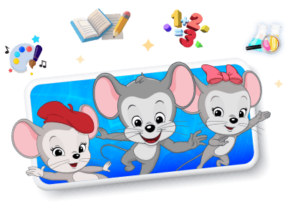
What is Roadschooling?
In roadschooling, families combine their homeschool curriculum with the experiential, real-world learning that comes naturally with traveling.
For many families, roadschooling means packing up computers, books, and belongings and traveling the country–often RV-style–in search of unscheduled educational experiences that extend beyond the classroom. Roadschooling has become a growing trend for families looking for flexibility and freedom from the traditional school setting.
Children who are roadschooled have an opportunity to experience their lessons first-hand.
Roadschooling also introduces kids to many new places, helping them learn to appreciate and embrace the local culture of areas beyond their hometown.
For Example: When learning about plant life cycles, a visit to a national park or arboretum provides hands-on learning that kids can touch, see, and smell. A trip to Washington D.C. to view historical documents or monuments during an American history lesson is a fun deviation from textbooks.
Can I afford roadschooling?
Travel costs will likely be your biggest expense on your journey. Some families prepare for roadschooling by saving for several years, selling or renting out their homes, or finding jobs they can perform remotely and while on the road. Here are some of roadschooling’s biggest expenses and few ideas to make the experience more affordable.
Roadschooling’s Main Expenses
- Your mode of travel, which is often a converted school bus, travel van, pop-up camper, or RV.
- If you’re renting an RV, keep in mind costs can include a daily rental fee and mileage.
- Gas to fuel your vehicle
- Nightly rates at campgrounds, RV parks, or hotels
- Groceries and eating out
- Tickets to attractions and parks
Ways to Save Money While Roadschooling
- If purchasing an RV, van, or camper, consider buying one that’s used.
- Make use of campgrounds or state or national parks for overnight accommodations.
- Purchase a curriculum that meets your needs and budget.
- Use free resources such as the Every Kid Outdoors Program, which grants all 4th graders free access to hundreds of parks across the country.
- Make your own meals when possible. Consider buying produce from farmers markets or farm stands as you travel through various towns.
- Research the areas you’re heading to, seeking out discounts, specials, and reduced rates.

What are roadschooling laws?
Roadschooling families need to establish residency within a “home state” with a physical address, and then must follow the homeschooling laws of that state. Some states require families to be physically present in-state for a specified length of time.
What are some benefits of roadschooling?
Roadschooling offers the freedom to experience learning together as a family and the time to discuss the day’s adventures during drives or dinner. It exposes kids to new adventures and interests while allowing a chance to bond closely as a family. Roadschooling also typically means more time being active outdoors and a more immersive way to learn about different topics, areas, and cultures.
Are there downsides to roadschooling?
It can sometimes feel harder to make permanent friends while on the road. Some families may miss being part of familiar social groups and regular structured activities and sports. Some roadschoolers also struggle with a lack of structure and motivation if the excitement of visiting different places trumps learning. Parents might also struggle finding a balance between traditional and experiential learning. Unreliable Wi-Fi can also be a challenge when traveling in remote places.
What does a typical day of roadschooling look like?

Roadschool changes from day-to-day, depending on if a family is traveling that day or exploring the area they’re visiting. Regardless, each day seizes opportunities to learn, whether it’s wandering a local museum, trying out foods in a street market, or studying the language and geography of the area.
Families often work more formal studies into their roadschooling with various types of curriculum, including textbooks, workbooks, online curriculum, and more.
Support Your Homeschool with ABCmouse and Adventure Academy
Our digital learning programs are designed by curriculum experts to assist your homeschool and children ages 2 through 13. ABCmouse is a comprehensive online educational platform for children ages 2-8, while Adventure Academy focuses on children ages 8-13. Both programs provide access to lessons on reading, language arts, math, sciences, social studies, and more. Learn more about how each program can enhance your homeschool below.
ABCmouse and Homeschooling
ABCmouse offers over 10,000 learning activities and more than 850 lessons for children, plus a large digital library of books and educational puzzles, songs, activities, and worksheets. The program encourages self-paced learning with motivating rewards and includes progress tracking, which allows home educators to monitor time spent on certain subjects and the number of activities completed.

Then just $14.99/mo. until canceled
As a paid add-on to regular subscriptions, home educators can access the Assessment Center, which allows parents and caregivers to test children on their knowledge, determine successes and struggles, and receive recommended lessons based on assessments.
ABCmouse provides a robust curriculum that can supplement other early learning lessons. It’s trusted resource that’s been downloaded over 10 million times and has a 4.5-star average out of 831.4K ratings.
Adventure Academy and Homeschooling
Adventure Academy combines an interactive world with a curriculum covering reading, language arts, math, science, and social studies. With quests, games, and educational videos and activities, learning becomes an epic journey that motivates kids to explore various topics.
For homeschooling families, Adventure Academy offers an engaging, flexible learning experience that can supplement other educational materials. The program features thousands of activities created by curriculum experts and covers all major academic domains.
Parents and caregivers can choose academic difficulty levels and track each child’s progress, seeing time spent in Adventure Academy, activities completed, and subjects studied.
Adventure Academy emphasizes key topics such as reading comprehension, vocabulary development, mathematical operations, fractions, world geography, American history, physical science, life science, earth science, and scientific inquiry.
For more information, visit AdventureAcademy.com.
More from ABCmouse:
-
Rhyming Schemes for Kids with Examples
Learn what a rhyme scheme is, see examples from poems and nursery rhymes, and discover fun activities to help kids recognize and practice rhyming patterns.
-
Why Rhyming is Important? (Tips for Teaching)
Discover why rhyming is key for early literacy and how it helps kids develop phonemic awareness. Get expert insights and fun activities to teach rhyming.
-
Rhyming Couplets – With Definitions and Examples
Discover rhyming couplets with fun examples, poetry styles, and engaging activities for kids. Explore famous poems and creative ways to learn rhyme!
-
Easy Ways to Teach Blending Words
Teach young readers to blend words with these fun strategies and activities! Discover phonics blending techniques, examples, and hands-on learning tips.
-
Best Rhyming Books for Young Readers
Discover 50 engaging rhyming books for toddlers to second graders! Boost early literacy skills, enjoy playful language, and make reading even more fun.
-
How to Teach One to One Correspondence Made Easy
Discover play-based activities and tips to teach one-to-one correspondence, a key math concept, to preschoolers in fun and engaging ways.







